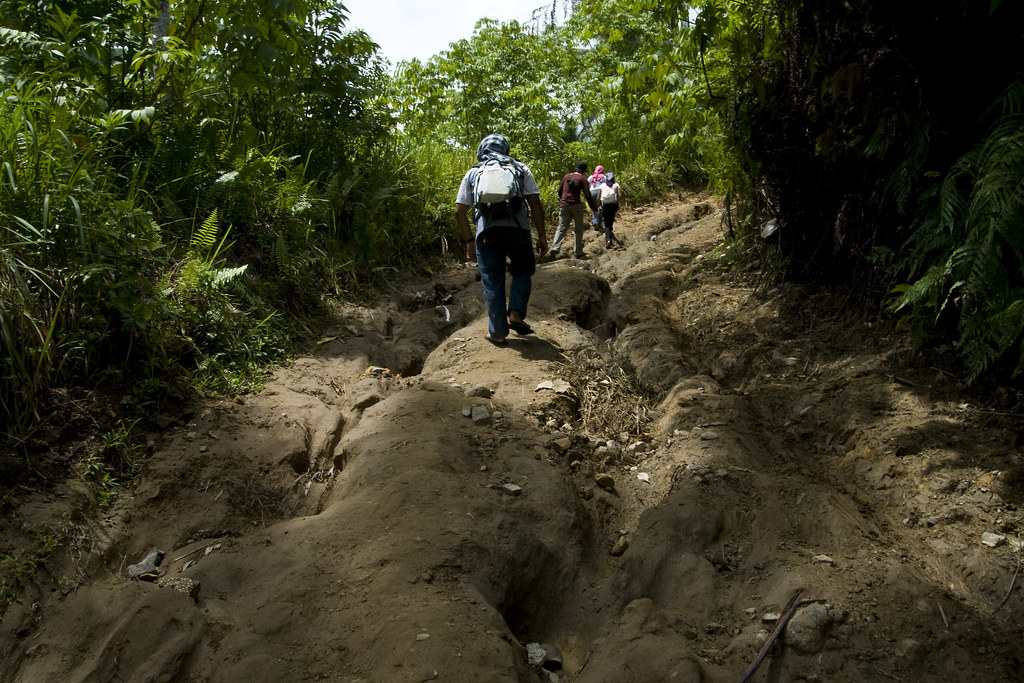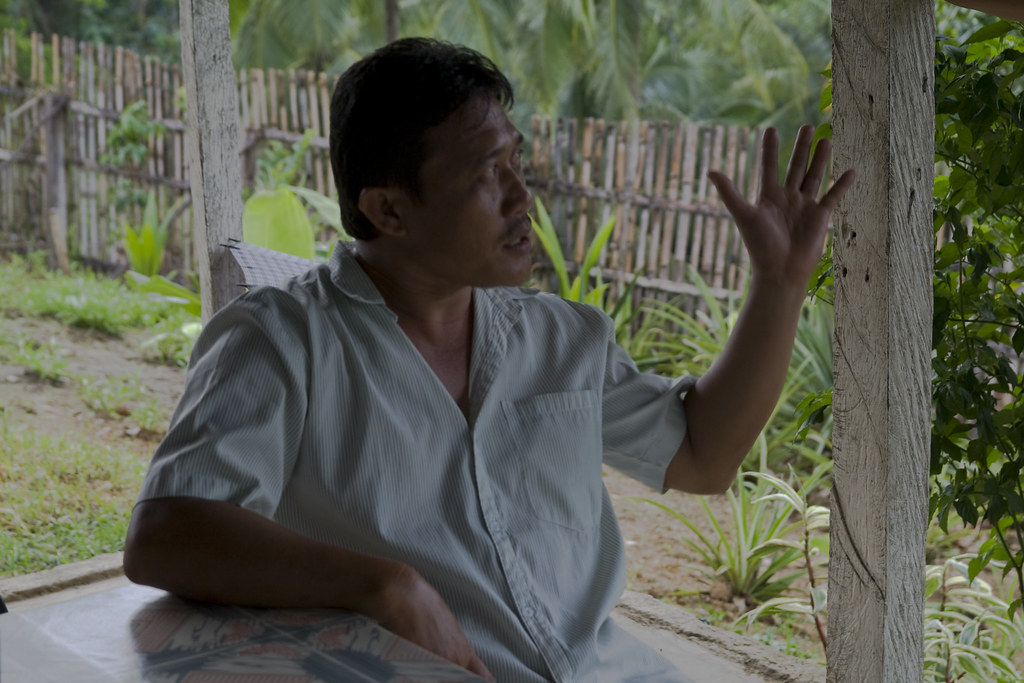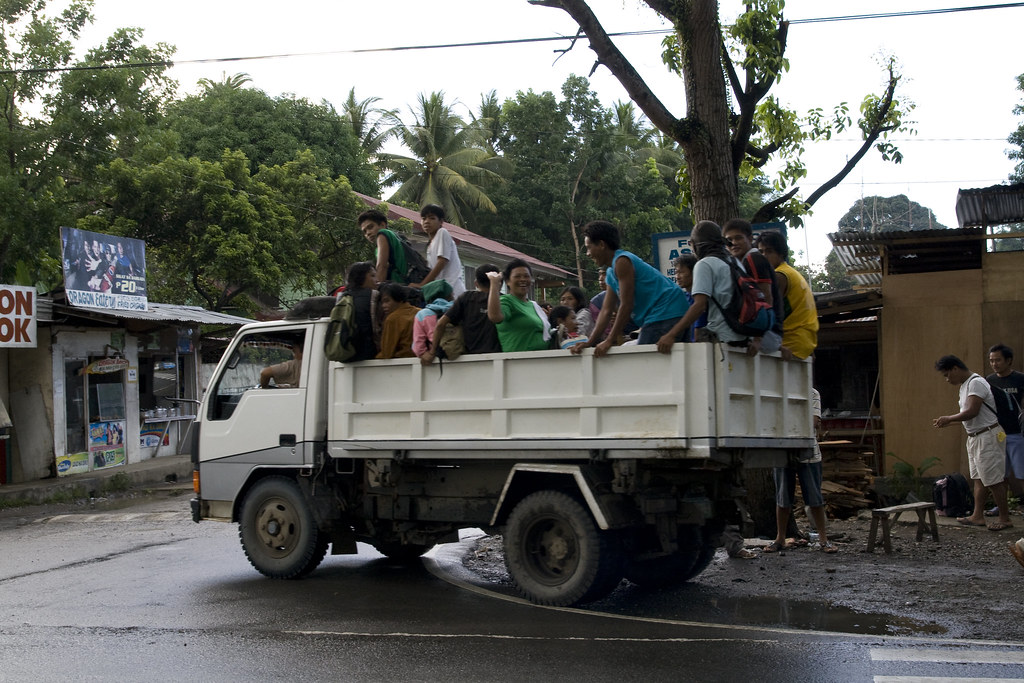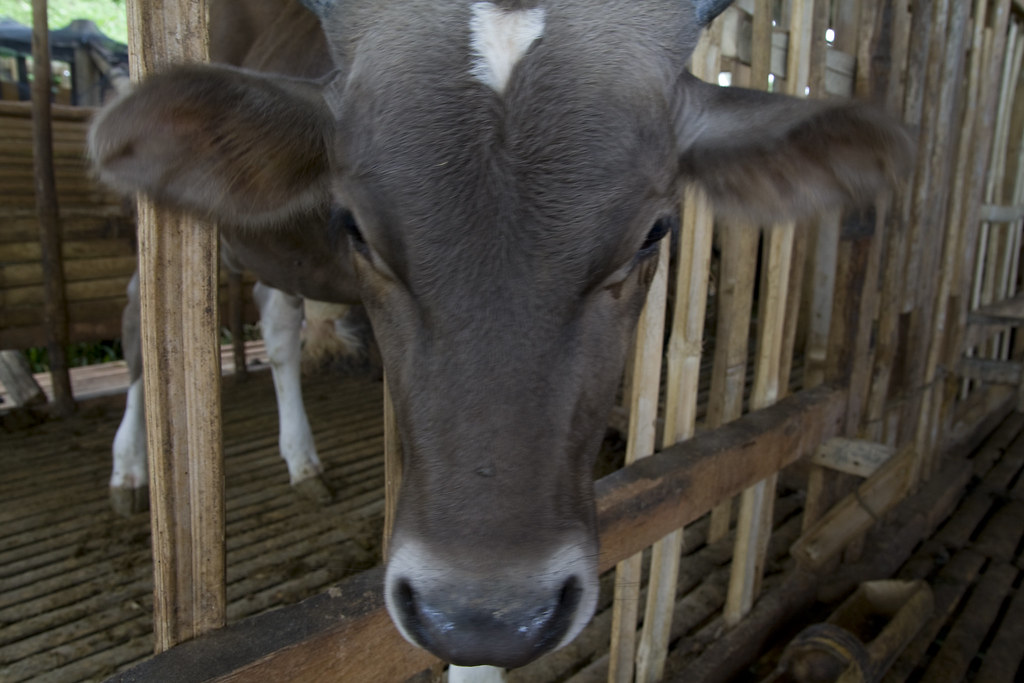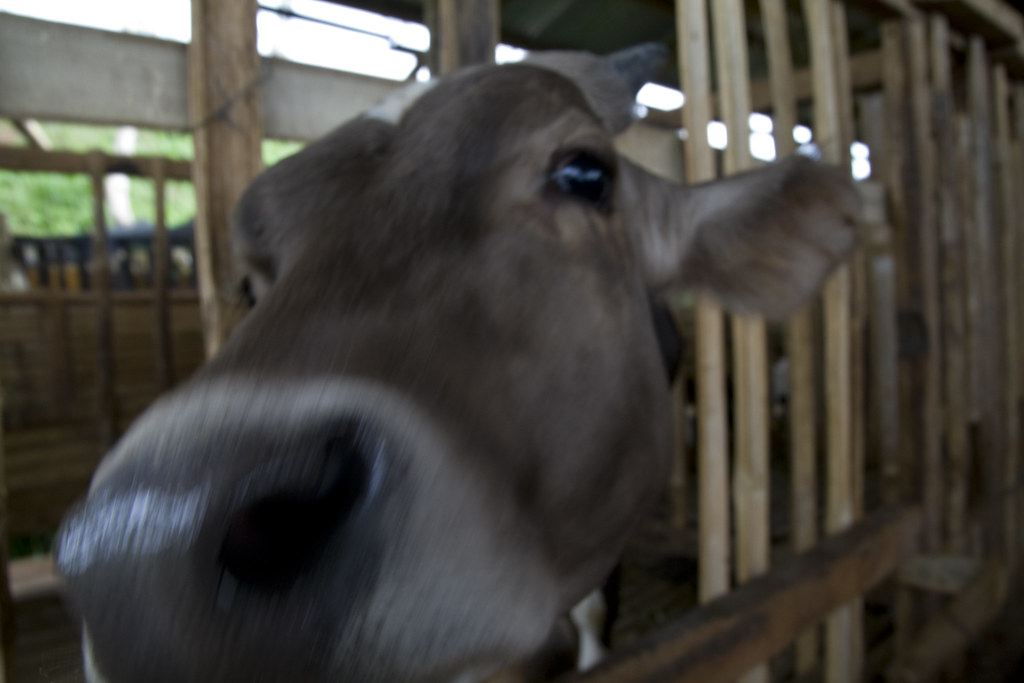Monday, June 30, 2008
Flying.
Sadly, here in Manila, where I'm waiting for my flight to Jakarta, the accommodations are a bit more basic. But I can't win every time.
It's been a short & sweet visit to Manila. Catching up with friends, visiting archives and libraries here, and making arrangements for my longer stay next month. Not overly much to report. (The greatest excitement for me was the scandalously cheap prices at the National Historical Institute. Their press once published bound collections of materials from the Spanish period, but hardly anyone here reads Spanish anymore, so they practically give them away. I returned to my friend's in Mandaluyong laden with rare books from the 1930s and '40s, laughing about how their patrimony was being sold to foreigners for a few hundred pesos.)
I'm still working with my images and recordings from Zamboanga, and I'll try posting a few little slideshows in the next days, pending broadband availability..
Monday, June 23, 2008
Wednesday, June 18, 2008
CDO
I'm back in Cagayan de Oro, leaving for Cebu tomorrow evening. It was another eventful trip, but I'm too burnt out to write much more. So consider this the not-dismembered-in-motorbike-crash-or-kidnapped post, and I'll fill in the details tomorrow.
Sunday, June 15, 2008
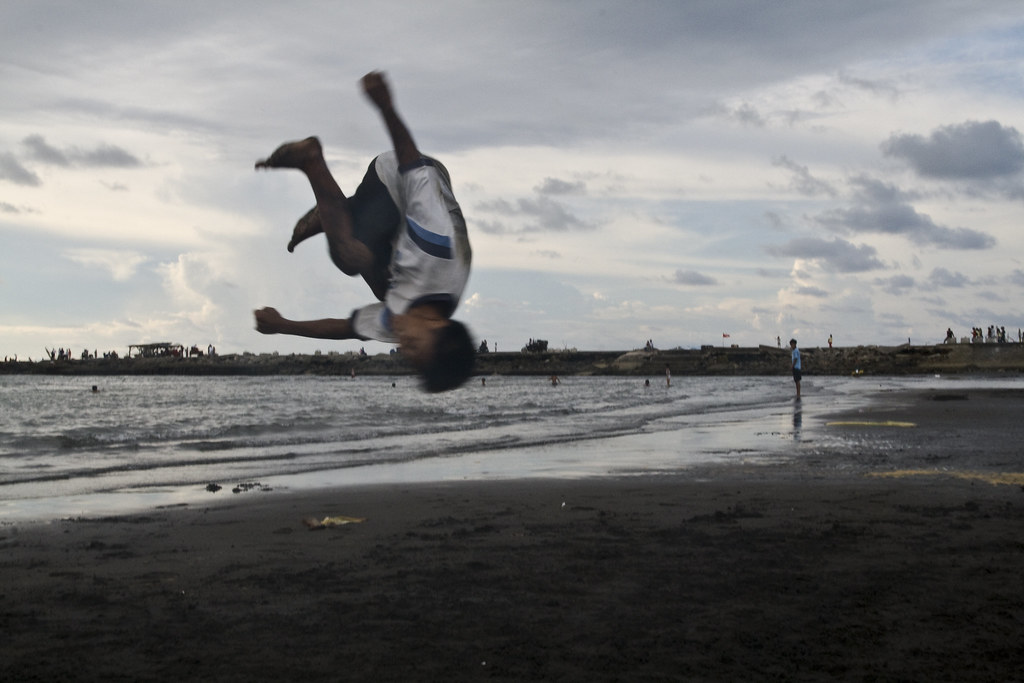

I'm leaving again for the mountains early tomorrow morning. This time, I'll be well and truly off the grid -- 12 km hike in, no cellphone signal -- so I'll be out of touch for at least the next 2 days.
Geeky digression: the only Tagalog word, to my knowledge, that has become completely integrated into English is bundok, aka Boondock, which means mountain. During the Philippine-American War (and ever since) the mountainous hinterlands were tactical centers for resistance. When asked where the rebels were, locals would respond "sa bundok," which entered military slang, and from there vernacular english.
Saturday, June 14, 2008
A Bridge Unbuilt
*[Slightly under-edited sneak preview of a much larger project]*
 Barangay Miatan is located deep in the hills outside of Katipunan, Zamboanga del Norte. The entrance to the barangay can be reached only by foot or the most rugged of motor vehicles, a long trip along jaw-rattling dirt and gravel roads lined with paddies where farmers transplant rice by hand and plow with the help of caribous.
Barangay Miatan is located deep in the hills outside of Katipunan, Zamboanga del Norte. The entrance to the barangay can be reached only by foot or the most rugged of motor vehicles, a long trip along jaw-rattling dirt and gravel roads lined with paddies where farmers transplant rice by hand and plow with the help of caribous. Reaching the center of the community is even more difficult. A dilapidated pedestrian bridge is suspended over the Dicayo river. The only other option is straight through the river.
Reaching the center of the community is even more difficult. A dilapidated pedestrian bridge is suspended over the Dicayo river. The only other option is straight through the river.We came up in a decommissioned military jeep, and only just made it across. About a third of the way through, water started flooding in through the door, nearly reaching my seat and sending me scrambling to keep my camera and computer dry. Halfway across, the jeep stalled, and I thought for a minute we were going to have to swim, until the motor coughed back to life.
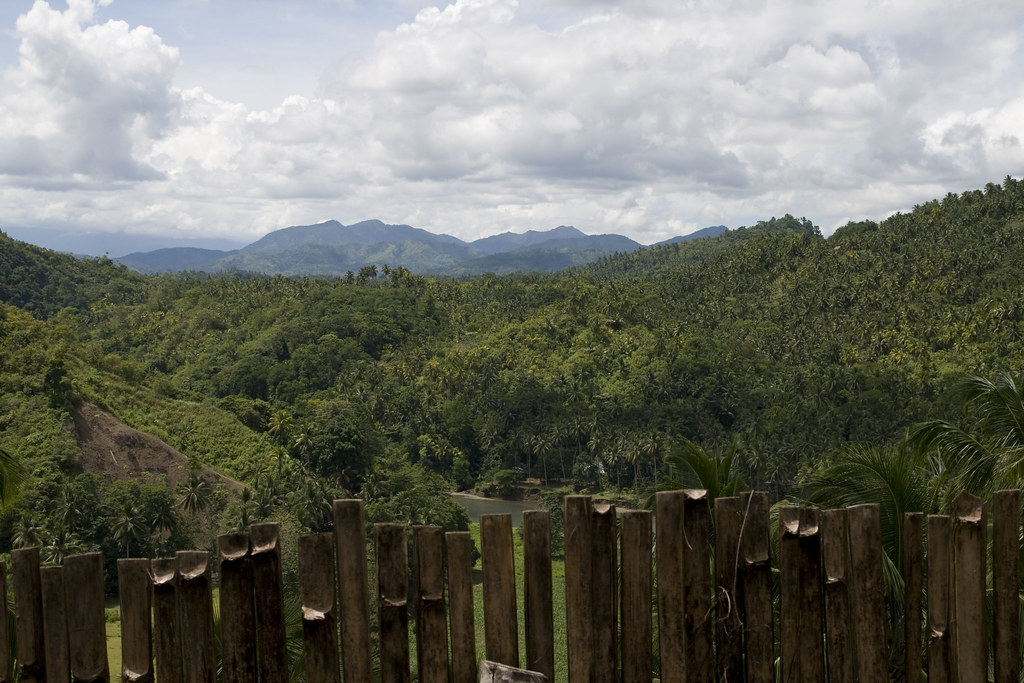 Remote barangays like Miatan have suffered the brunt of human rights abuses from the government and military. During the Marcos regime, this small Subanon community of 240 households was home to a military detachment, whose abuses drove many to the hills or the city. Women were harassed, locals recall, and farmers treated like slaves.
Remote barangays like Miatan have suffered the brunt of human rights abuses from the government and military. During the Marcos regime, this small Subanon community of 240 households was home to a military detachment, whose abuses drove many to the hills or the city. Women were harassed, locals recall, and farmers treated like slaves.The situation improved somewhat after the fall of Marcos, when President Aquino made moves to demilitarize the countryside -- but the hills of Katipunan remained hotspots of insurgency and retaliatory military strikes.
In 2003, local peace consultations began, with the support of the Revolutionary Workers Party - Mindanao (RPMM), a Marxist rebel group. The RPMM promised to lay down their weapons if the government would take steps to meet the needs of impoverished barangays in Mindanao. A ceasefire was negotiated, and by all accounts the RPMM has held up their end of the deal.
In exchange, the government was supposed to fund development projects identified by communities themselves. After local consultations held in 2005, the central government promised 5 million pesos for infrastructure projects in each barangay involved in the peace process. The people of Miatan decided their first priority was to build a submarine bridge across the Dicayo. The bridge is a key element in their other plans as well, providing a farm-to-market road to expand economic opportunities, and making it possible to develop Morias falls as an eco-tourism destination.
 Three years later, the money still hasn't come. "The budget was suddenly gone," says Haydee Lodovece, head of a local people's organization. "Five million is five million. It's not easily forgotten."
Three years later, the money still hasn't come. "The budget was suddenly gone," says Haydee Lodovece, head of a local people's organization. "Five million is five million. It's not easily forgotten."People here have a way of laughing when telling these kinds of stories. But it's clear they're frustrated, especially as they find themselves squeezed tighter and tighter by the rising cost of food and fuel. By neglecting to meet their commitments in the peace process, the government is playing a dangerous game. Unrest in Mindanao has always been, fundamentally, about the central government's failure to deal fairly with the people. Every time this happens, peace workers say, it gets harder and harder to bring people together to talk about peace.
With less food on the table every day, says Ike de los Reyes, an RPMM leader, the poor are more inclined to return to armed struggle. Peace talks have not brought them enough to survive. "The people," he says. "Cannot lose anything but their sufferings and their hunger."
Friday, June 13, 2008
Hero
With gold prices skyrocketing, mining companies are eager to expand their operations into previously untapped reserves. One such area is Barangay Miatan. Canadian firm Toronto Ventures Incorporated sent engineers and company officials to survey the area and negotiate an agreement with the locals. The people of Miatan, Subanon tribal people, are eager for economic opportunities, but aware of the human rights abuses and environmental destruction TVI has been responsible elsewhere, the community knew this was not the kind of development they wanted.
Company officials then went to Cabasag, offering him a bribe worth five times his annual salary to push the paperwork. Cabasag refused. "It affects more than just me," he said.
Coming down the mountain
I'm back in the city again (Dipolog) after visiting communities up in the mountains. I'm a bit worn out, especially after the trip down.
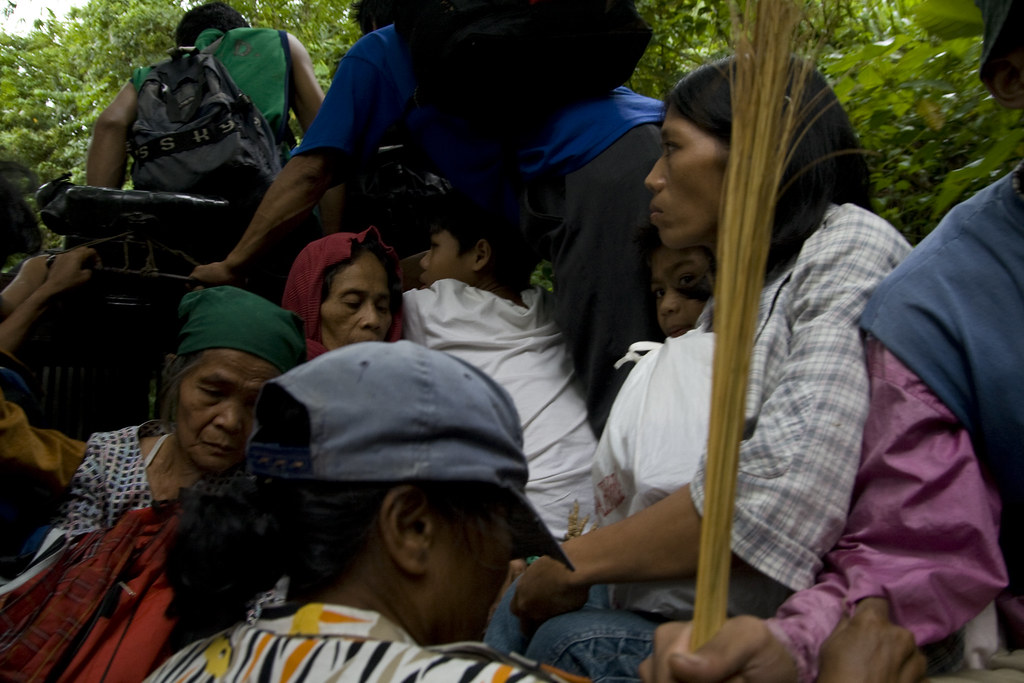 I tagged along with people from 2 local NGOs working on implementing livelihood programs as part of the GRP-RPMM peace process. On the way back, we caught a ride down to the city with most of the barangay, since they were going to a wedding in town.
I tagged along with people from 2 local NGOs working on implementing livelihood programs as part of the GRP-RPMM peace process. On the way back, we caught a ride down to the city with most of the barangay, since they were going to a wedding in town.
We were fortunate not to have to walk, but it was a pretty grueling trip. I counted 34 people in the truck, (from grandmothers to babies to one foreigner wishing her legs were about 6 inches shorter) plus two terrified pigs and a chicken.
 I tagged along with people from 2 local NGOs working on implementing livelihood programs as part of the GRP-RPMM peace process. On the way back, we caught a ride down to the city with most of the barangay, since they were going to a wedding in town.
I tagged along with people from 2 local NGOs working on implementing livelihood programs as part of the GRP-RPMM peace process. On the way back, we caught a ride down to the city with most of the barangay, since they were going to a wedding in town.We were fortunate not to have to walk, but it was a pretty grueling trip. I counted 34 people in the truck, (from grandmothers to babies to one foreigner wishing her legs were about 6 inches shorter) plus two terrified pigs and a chicken.
Tuesday, June 10, 2008
Del Monte
 Del Monte is one of the biggest landowners in the area around Cagayan de Oro. This particular field was once used to grow corn. Like much of the land on Mindanao that was once planted with staple foods, it is now used to grow fruit for export.
Del Monte is one of the biggest landowners in the area around Cagayan de Oro. This particular field was once used to grow corn. Like much of the land on Mindanao that was once planted with staple foods, it is now used to grow fruit for export. Once the rice basket of the Philippines, Mindanao now depends on imported rice to feed its population, shackling the island's food supply to global commodity markets. With grain prices rising, poor laborers like these -- who do backbreaking labor harvesting food they cannot use to nourish their families -- are among the hardest hit.
Once the rice basket of the Philippines, Mindanao now depends on imported rice to feed its population, shackling the island's food supply to global commodity markets. With grain prices rising, poor laborers like these -- who do backbreaking labor harvesting food they cannot use to nourish their families -- are among the hardest hit.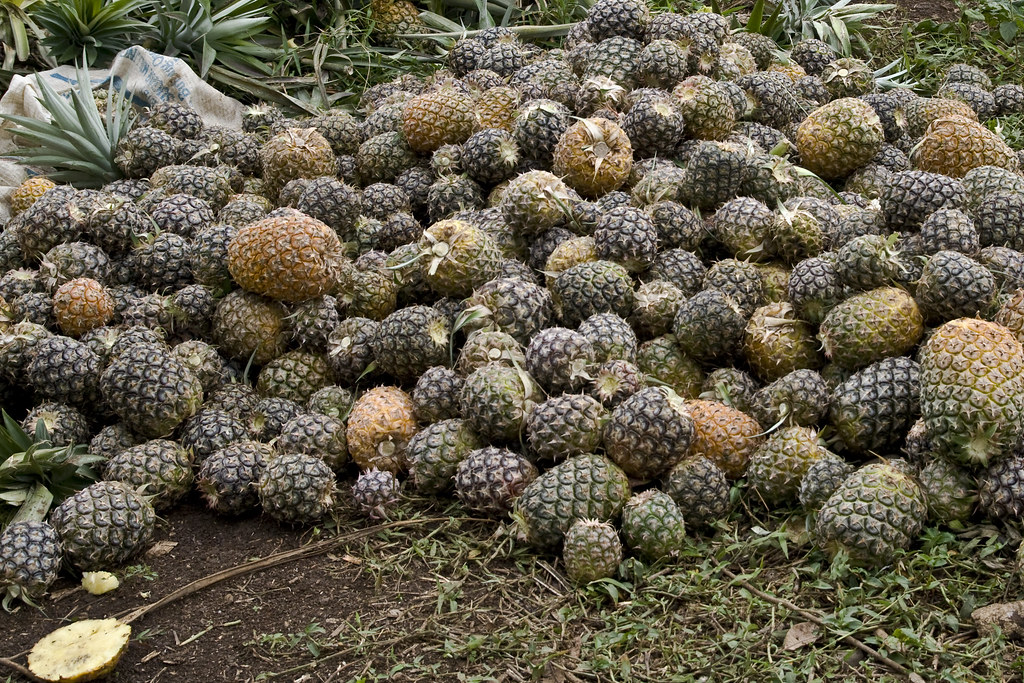 On another note, regarding "Filipino style," these workers, who have almost nothing, insisted on making a gift of some pineapples. I must confess: they were sweet and delicious. (Even sprinkled with salt per local custom).
On another note, regarding "Filipino style," these workers, who have almost nothing, insisted on making a gift of some pineapples. I must confess: they were sweet and delicious. (Even sprinkled with salt per local custom).
Videoke
This is classic Filipino style, in a way that's almost impossible to explain. As in: "Yeah, I'm hanging out drinking in a shack, but it has the damn finest videoke machine money can buy."
Or maybe: "I'm thinking of opening a bar, but I only have limited capital. What should I invest it in?"
Sunday, June 08, 2008
p.s.
In the past, I've had to threaten to withhold future postings until I start getting some email/comments. Let's hope we don't get to that point again....
Telling it like it is
This is a quick-and-dirty little slideshow of Lorena Navarro, at Bankerohan Market in Davao City. She used to grow corn, but the price of fertilizer got too high, and her earnings were to low, so like many farmers, she had to leave the provinces and come to the city to look for work.
“It’s become too difficult to make a living, so many people stopped farming corn and rice,” she told me. “Now they just grow bananas and camote. But do you want to eat just bananas and camote? It that what you want? Look at the poor – fighting here, almost killing each other just to buy some cheap rice.”
When the government subsidized rice ran out at the market, she lost her temper, jumped up on a platform and started shouting against the government, accusing President Arroyo and other officials of failing to take care of the people, of corruption, of having bad policies about fertilizer and other agricultural products. "We're sick of this," she says. Sick of waiting in line, sick of hunger. As you can see, she found a pretty receptive audience.
Sorry for lack of subtitles, maybe in the future.
Labels:
Arroyo,
Corruption,
Mindanao,
Philippines,
rice,
Youtube
Saturday, June 07, 2008
Working...
There's something more than a little ironic about sitting down to write about food prices, conflict and poverty when the cup of coffee I just bought would buy 4 kilos of NFA rice.
(Well, 3 now that they've just hiked up the price again)
It's a contradiction I really have no answer to, other than to remind myself of how happy people are when someone cares enough about their lives to show up with a camera and a recorder.
Friday, June 06, 2008
Rice Crisis in Davao
Canibad
-And we interrupt this public service announcement for a bit of shameless hedonism-

I spent last summer in the Philippines, but somehow (workaholism?) never managed to go swimming. Determined to rectify this error, I took a trip with friends to what they consider to be the best beach near Davao City -- Canibad on Samal Island.
We were all geared up to take the jeep to the bus to the ferry to the motorbike to the beach -- but just as we were leaving, a truck pulled out of the lot across the street. On a whim, we flagged them down, thinking we might catch a ride into the city instead of waiting for the bus. It turned out, though, that they were going exactly where we were, and were happy to give us a lift. (Two of the workers chivalrously gave up their seats in the cab to Chay and I, and everyone else rode on top of sacks of cement in the back.

It was a journey of about 3 hours, the last 2 of which were on a fairly astonishing unpaved, windy and steep road along the Samal coast. But well worth the trip -- we had a pristine beach pretty much to ourselves, rented a picnic hut, made a fire, and slept under the stars.

All in all, it was a memorable experience, but what I think the return trip is what will stick with me for the longest. So far, my luck on this trip has been pretty amazing, but it wasn't good enough to produce a truck ride home, so we had to go the normal route. "Normal" in the Philippines meaning four passengers on one motorbike -- three clinging for dear life behind the driver, and one in the torpedo spot right up by the handlebars, cradled like a baby between the driver's arms.
As we approached one particularly steep, unpaved descent, the driver stopped to make sure we were all still attached. As he let go of the brakes, Chay leaned from behind me and shouted "Third World rollercoaster!" Racing down that hill, through the forest in the bright, bright sunshine, I felt newfound sense of the fragility of my own body, and so, so happy to be alive.

I spent last summer in the Philippines, but somehow (workaholism?) never managed to go swimming. Determined to rectify this error, I took a trip with friends to what they consider to be the best beach near Davao City -- Canibad on Samal Island.
We were all geared up to take the jeep to the bus to the ferry to the motorbike to the beach -- but just as we were leaving, a truck pulled out of the lot across the street. On a whim, we flagged them down, thinking we might catch a ride into the city instead of waiting for the bus. It turned out, though, that they were going exactly where we were, and were happy to give us a lift. (Two of the workers chivalrously gave up their seats in the cab to Chay and I, and everyone else rode on top of sacks of cement in the back.

It was a journey of about 3 hours, the last 2 of which were on a fairly astonishing unpaved, windy and steep road along the Samal coast. But well worth the trip -- we had a pristine beach pretty much to ourselves, rented a picnic hut, made a fire, and slept under the stars.

All in all, it was a memorable experience, but what I think the return trip is what will stick with me for the longest. So far, my luck on this trip has been pretty amazing, but it wasn't good enough to produce a truck ride home, so we had to go the normal route. "Normal" in the Philippines meaning four passengers on one motorbike -- three clinging for dear life behind the driver, and one in the torpedo spot right up by the handlebars, cradled like a baby between the driver's arms.
As we approached one particularly steep, unpaved descent, the driver stopped to make sure we were all still attached. As he let go of the brakes, Chay leaned from behind me and shouted "Third World rollercoaster!" Racing down that hill, through the forest in the bright, bright sunshine, I felt newfound sense of the fragility of my own body, and so, so happy to be alive.
Daily News
-- I wrote this on the 2nd, but couldn't post until now --
A round-up of news from today's local papers, just to give some context on what this place is like:
Oh...and a local girl won Miss Teen Philippines!
I <3 the Philippines.
A round-up of news from today's local papers, just to give some context on what this place is like:
- Rice prices up 10 pesos per kilo in the last week, hitting record highs of 50 pesos in some municipalities. Panic ensuing.
- Writ of habeus corpus filed on behalf of broadcaster Lex Adonis, after a Davao prison warden refused to release him despite a court order. (Adonis is accused of making unflattering remarks about a local power broker)
- Update on 255 farmers and their families who have taken refuge in a local gymnasium after fleeing from military operations in Compostela Valley
- Local government officials in say they don't know anything about the MILF peace process beyond what they "read in the papers and hear from our constituents."
- Update on Zamboanga businessman kidnapped my suspected Abu Sayyaf militants.
- The military claiming MILF factions are behind a deadly bombing at an airbase in Zamboanga.
- Still no word on who's behind sabotage of power lines.
- Various murders, and helpful advice from vice-Mayor Sara Duterte that pubs and restuarants should "hire more security" promises to look into laws to require frisking all patrons.
- Proposed fare hikes for public transportation, to make up for increased fuel prices.
Oh...and a local girl won Miss Teen Philippines!
I <3 the Philippines.
Sunday, June 01, 2008
Rice in Davao
The first topic of conversation on everyone here's lips in the price of rice.
The last time I was here, you could buy a kilo of good quality rice for 20 pesos, (about 50 cents). In the year since then, it's more than doubled, and the price is rising every day. Rice is the staple food of the Philippines, eaten at every meal and making up the bulk of people's caloric intake -- and the poorer people are, the more they rely on it, so price increases are hitting people right in the stomach.
The lead story in the local paper today was about a man who hung himself in despair over the price of rice. The government provides some subsidies, but not enough. People wait in line for hours to be able to buy 1-2 kilos of rice at the old prices -- not nearly enough to feed a family.
The ripple effects are terrible. Some of my friends here run a program that provides free meals to street children and the elderly. They rely heavily on donations from vendors and discounted rice. Now, nobody has anything to spare, so they've had to suspend operations indefinitely. And the state doesn't step in to fill the gap. Everyone is suspicious of those with farmers and money. "Farmers only make 12 pesos a kilo," one woman told me. "And the merchants sell for 40. So where does the money go?"
People are suspicious of government officials using loan money from the World Bank and Asian Development Bank to buy imported rice, and pocketing 40 percent. It's always hard to tell here, but I've generally found the rumor mill to be one of the most accurate sources of information available in the Philippines.
"We think the leaders of this country knew in advance the kind of problems we're going to have," said a friend, only half joking. "They're trying to make all the money they can, then move somewhere else before the Philippines gets sold to China."
*maybe tomorrow with pictures, but for now this internet connection is way to ridiculous
The last time I was here, you could buy a kilo of good quality rice for 20 pesos, (about 50 cents). In the year since then, it's more than doubled, and the price is rising every day. Rice is the staple food of the Philippines, eaten at every meal and making up the bulk of people's caloric intake -- and the poorer people are, the more they rely on it, so price increases are hitting people right in the stomach.
The lead story in the local paper today was about a man who hung himself in despair over the price of rice. The government provides some subsidies, but not enough. People wait in line for hours to be able to buy 1-2 kilos of rice at the old prices -- not nearly enough to feed a family.
The ripple effects are terrible. Some of my friends here run a program that provides free meals to street children and the elderly. They rely heavily on donations from vendors and discounted rice. Now, nobody has anything to spare, so they've had to suspend operations indefinitely. And the state doesn't step in to fill the gap. Everyone is suspicious of those with farmers and money. "Farmers only make 12 pesos a kilo," one woman told me. "And the merchants sell for 40. So where does the money go?"
People are suspicious of government officials using loan money from the World Bank and Asian Development Bank to buy imported rice, and pocketing 40 percent. It's always hard to tell here, but I've generally found the rumor mill to be one of the most accurate sources of information available in the Philippines.
"We think the leaders of this country knew in advance the kind of problems we're going to have," said a friend, only half joking. "They're trying to make all the money they can, then move somewhere else before the Philippines gets sold to China."
*maybe tomorrow with pictures, but for now this internet connection is way to ridiculous
Subscribe to:
Posts (Atom)

